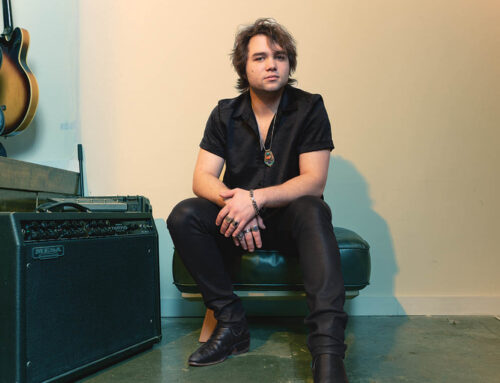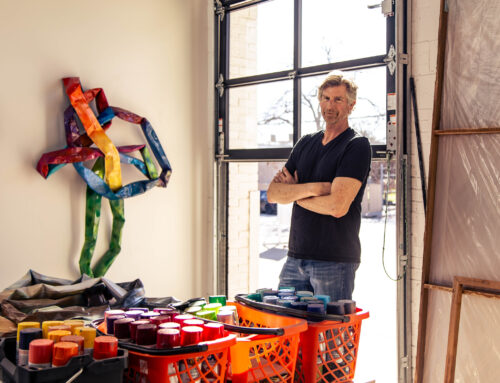When neighborhood resident Maryln Schwartz began her tenure at the Dallas Morning News in the early 1960s, the world was a different place, and notions of political correctness were definitely not en vogue.
For all of its liberal bravado, the world of newspapers was not nearly as progressive as one would have thought. And even with a fast wit, Schwartz’ rise from obituaries writer to city desk reporter and then, finally, to features columnist, was slow.
“There were only certain kinds of beats and stories that a woman could cover,” says Carolyn Barta, national political correspondent for the News and Schwartz’ longtime friend since their “cub reporting” days together.
But, early on, says Barta, Schwartz had the senses and wily ways of a seasoned journalist.
Early in their careers, as part of the White House press corps, the two young reporters took a trip together during the days of President Nixon’s resignation and Ford’s swearing in.
“On the first Sunday after he had been sworn in, President Ford and his family went to services at a small Episcopal church in Virginia,” says Barta. “We were unknowns, so we stashed our press badges, went into the church and found seats near the back.”
When the Ford family came in, they were seated directly behind the two.
“Maryln looked at me and whispered, ‘Page 1.’ Then she whispered what brand of after-shave Mr. Ford was wearing as he prayed in her ear.”
The Making of a Journalist / Schwartz didn’t set out to be an observer of the world’s more colorful details.
In high school, she worked odd jobs at Alabama’s Mobile Press Register. Afterward, while attending college, her father fell ill and she returned home to care for him. It was after his death that Schwartz saw fit to depart from Alabama and set out to be a journalist.
“I took that as a turning point in my life,” she says. It has taken her places she likely never expected to go.
She accompanied Texan Van Cliburn, winner of the First International Tchaikovsky’s Piano Competition in Moscow during March of 1958, on one of his return trips to Russia. She’s covered Super Bowls. She’s had audiences with princesses, presidents and luminaries. In fact, Schwartz has seen firsthand many of the people and events responsible for shaping the culture of the last half of the twentieth century.
And living in Texas has surely given her scads of good material, she says. She’s written two humor books that deal with Texas and “southernisms”: A Southern Belle Primer, or Why Princess Margaret Would Never be A Kappa Kappa Gamma and New Times in the Old South or Why Scarlett’s in Therapy and Tara’s Going Condo.
“I love Texas because it’s quirky and eccentric,” she smiles.
“Press Pass to Life” / Eventually, Schwartz and Barta’s careers took different directions. While Barta stayed on with politics and government, Schwartz moved to the softer side of features reporting and was eventually given her own column, which she’s had now for nearly 20 years.
While Barta and others characterize the opinions Schwartz expresses in her columns as “fearless,” Schwartz says expressing herself to scores of readers on a weekly basis was something she had to get used to.
“When I became a columnist, the hardest thing was for me to give opinions,” she says.
It’s a hurdle that she’s apparently cleared by now.
Take the case of Dr. Laura Schlesinger. When the popular radio personality came to Dallas in 1997 to speak with a group of women about Judaism, Schwartz ripped her apart in the next day’s column, calling Schlesinger “nasty, arrogant and insulting.” Dr. Laura broke down and cried over it on a radio show the following day.
That’s just part of the job, according to Schwartz.
“That’s what you do. It’s not about me; it’s about what I see. I try to give both sides, but you always know what I think.”
“There are no sacred cows for Maryln,” says Barta. “She has always been fearless.”
It’s a quality that served her well in the late ’90s when she was confronted with her biggest challenge yet: breast cancer. During chemotherapy, a mastectomy and her recovery from the disease, Schwartz did not stop writing her column. Instead, she wrote from home, and tackled a subject that hit a lot closer to it.
“I was late for my mammogram,” she wrote. “So was Murphy [Brown, of sitcom fame]. Both of us assumed we had a press pass to life. How could anything be wrong with us? We wrote about crises, we didn’t involve ourselves in them.”
The Long Haul / Working for a newspaper goes beyond the traditional 9-to-5 workday. Breaking news and important events mean that plenty of plans have been scrapped over the years in order to get the job done.
“This is more than a 40-hour work week,” she says. “This is a 7-day-a-week job. It’s much harder than you think because you have to come up with your own ideas.”
Still, the single and travel-loving Schwartz isn’t inclined to complain: She knows her beat ain’t so bad.
“Sometimes the things people have told me, it’s astounding. I love getting inside people and things because I have the chance to ask and find out things that we never [would otherwise].
“When I think of the late nights and lost dates, I think of the trip with Van Cliburn to Russia and think: Where in the world would I get to do this?
“This is the only job I’ve ever had.” And the only job, she adds, she’d ever want.






